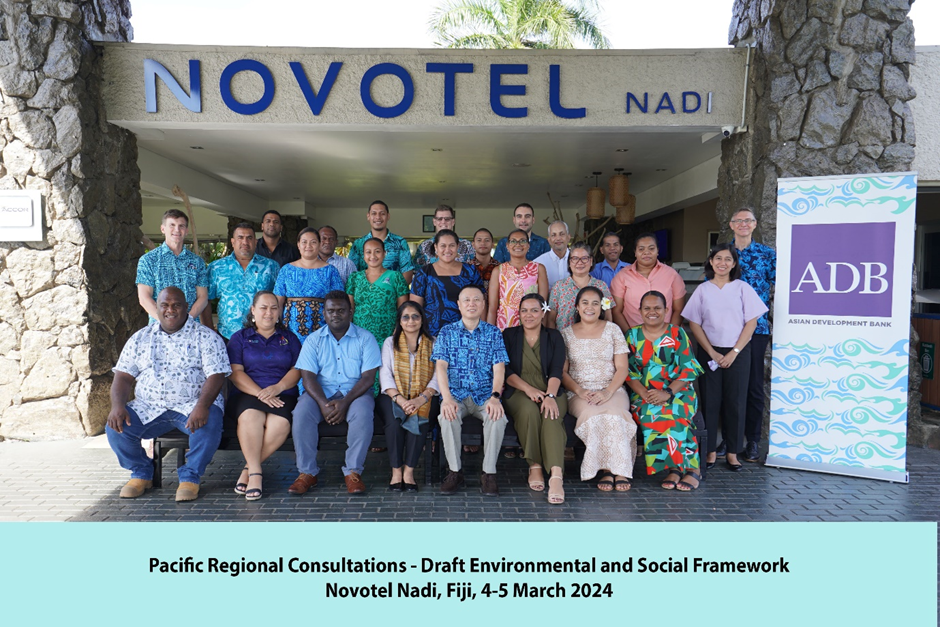
Officials attend Regional Consultation on ADB’s draft Environmental and Social Framework
A three-member delegation from the national government attended a regional consultation on the Asian Development Bank (ADB’s) draft Environmental and Social Framework in Nadi, Fiji last week.
Robert Misimaka from the Ministry of Lands, Craig Zongahite Ross from the Ministry of Finance and Philip Riogano from the Ministry of Environment played a vital role at the regional event highlighting the interests of the Solomon Islands Government.
The Safeguard Policy Review and Update consultations provided opportunities for stakeholders to express their views and opinions on ADB’s draft ESF in the most meaningful and safest manner possible.
The purpose of this Environmental and Social Policy (E&S Policy) is to set out ADB’s mandatory environmental and social (E&S) requirements in relation to projects financed.
According to Misimaka, this vision sets out ADB’s aspirations regarding environmental and social (E&S) sustainability as outlined in its Strategy 2030 which sets its vision to sustain efforts to eradicate extreme poverty and to achieve a prosperous, inclusive, resilient, and sustainable Asia and the Pacific.
He added that ADB will support the global agenda of sustainable infrastructure development as a source of global growth and social and economic development and believes that the achievement of the Sustainable Development Goals and related Financing for Development agenda, the Paris Agreement on climate change, and the Sendai Framework for Disaster Risk Reduction will depend critically on the success of the region.
The consultations were informed of ADB’s affirmation that E&S sustainability is a cornerstone of green economic growth and poverty reduction in Asia and the Pacific and seeks to promote sustainability of project outcomes by protecting the environment and present and future generations of people from projects’ potential adverse impacts. ADB is committed to upholding fiduciary standards that enhance the E&S sustainability of its projects.
The meeting further informed participants of ADB’s commitment to ensuring that its borrowers/clients maintain open dialogue, meaningful consultation, clear, timely and appropriate disclosure of relevant project information, and a responsive grievance mechanism.
Further, if any potential development opportunities are identified in connection with a project, ADB will discuss with a borrower/client the feasibility of incorporating such opportunities into project design and implementation and ensuring equitable sharing of project benefits.
The Strategy 2030 sets out ADB’s focus on tackling climate change, building climate and disaster resilience, and enhancing environmental sustainability. In 2023 ADB approved its Climate Change Action Plan, which sets out prioritized invention areas and enhanced actions rooted in ADB’s commitment to provide support that is aligned with borrower/client priorities, capacities, climate change adaptation needs and climate change mitigation potential, and is guided by the principles of transformation that is equitable and socially inclusive.
ENDS///
– GOVERNMENT COMMUNICATION UNIT
